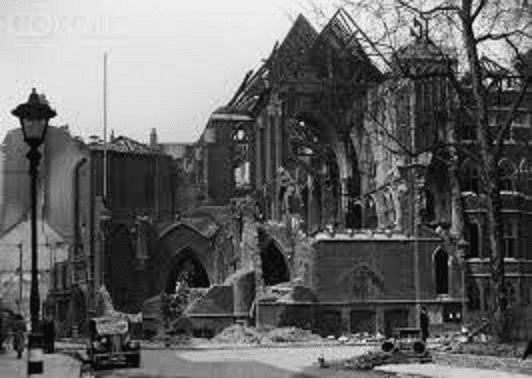Three weeks ago, I posted an essay that described a new course called “Faith and Doubt” that I will be teaching next spring with a Dominican priest colleague and friend from the Political Science department.
In the interest of moving the ball forward, we are meeting each week for lunch to discuss and plan. One of my proposed texts is The Time of the Angels, one of Iris Murdoch’s many thought-provoking and disturbing novels from the mid-20th century. I noticed the other day that although Murdoch was an honored novelist who won numerous awards with her fiction, The Time of the Angels is out of print and only available from used bookstores (at least according to Amazon). There’s a reason for this, since the novel asks questions and suggests possibilities that most of us would just as soon avoid.
In her beautiful and moving memoir Testament of Youth, Vera Brittain quotes the following excerpt from a letter she received from a friend, a man whom she would ultimately marry in middle age:
There is an abiding beauty . . . which may be appreciated by those who will see things as they are, and who will ask for no reward except to see. There is a high aesthetic pleasure in seeing the truth clear-eyed, and in not being afraid of things.
This expresses eloquently what many consider to be the ultimate driving force behind one of the highest of all human activities—the pursuit of truth. In many cases, such activities take on religious and spiritual significance—the search for transcendent Truth and God.
Yet such pursuits are fraught with dangers and pitfalls from the start. What if human beings do not possess tools adequate or appropriate for the search? What if transcendent truth does not exist at all, and there are only little, contingent truths that we construct for our utilitarian and pragmatic purposes, then baptize as Absolute Truth? Or worse, what if transcendent Truth does exist, but it is radically different than what we believe or expect it to be, different in some disturbing, frightening, or nightmarish way?

Enter The Time of the Angels, in which Iris Murdoch grapples directly with the possibility that we might want to think twice about pursuing ultimate truth. Marcus Fisher, one of the novel’s main characters, asks “Suppose the truth about human life were just something terrible, something appalling which one would be destroyed by contemplating?” The Time of the Angels is a complex novel whose central events are driven by one of the most dysfunctional families you’ll ever encounter. The various characters take very different approaches to what Murdoch elsewhere calls the most important question of the contemporary age: How is one to address human spiritual hunger and need in a post-theistic age?
Murdoch takes it for granted that the religious frameworks within which spiritual needs have been addressed and spiritual hungers have been satisfied traditionally are no longer meaningful for the vast majority of human beings. Through her characters, she provides a wide range of ways to cope with this situation.
The real philosophical interest and “heavy lifting” of the novel swirls around the Fisher brothers, Marcus and Carel. Marcus is an academic whose writing project is a book with the working title “Morality in a World without God”–his project is strikingly similar to what Iris Murdoch herself often attempted in her own philosophical essays and books. Marcus’s strategy is to accept the challenge of preserving a transcendent framework for morality, given the demise of the traditional religious frameworks that have previously provided such support for moral absolutes. He intends to argue that the religious myths and models of the transcendent are disposable so long as some other transcendent concept occupies the vacated space. His insight, in other words, is that morality requires rootedness in the transcendent, but perhaps almost any transcendent concept will do.
The energies and concerns underlying Marcus’s thinking come to light during a conversation with the local Anglican Bishop and Norah, a no-nonsense neighborhood woman. The three are having tea and discussing what to do about Marcus’s brother Carel, an Anglican priest who has lost his faith; Carel’s expressed atheism and erratic behavior have raised serious concerns in his new parish. For Norah, the problem has an easy solution—the crazy priest should be removed by the Bishop, since “it is highly dangerous for an unbalanced man to have that sort of power.”
The Bishop, surprisingly, disagrees, showing an unwillingness to make moral judgments of any sort (“let he who is without neurosis cast the first stone”), let alone one this specific. As the conversation progresses, the Bishop appears to be rather unconcerned about the imminent loss of traditional religious structures or even about conventional and traditional conceptions of morality. Marcus begins to perceive the dangers of divorcing morality from a belief in a good God or a benign transcendence and realizes that although in the post-modern world it might be “cutting edge” and “intelligent” to reject the idea of God, he surely doesn’t want to live in a world in which everyone has done so.
It occurred to him now how much it mattered to him that all that business should still go on in the old way. He did not believe in the redeeming blood of Jesus, he did not believe in the Father and the Son and the Holy Ghost, but he wanted other people to believe. He wanted the old structure to continue there beside him, nearby, something he could occasionally reach out and touch with his hand.
What if there truly is no God? Much worse than that, what if there is something transcendent, but it is dangerous, black, destructive? With no underlying guarantees, anything seems possible, including the worst.
As noted above, Marcus’s brother Carel is an Anglican priest who, despite the fact that he has lost his faith (or worse), has been assigned to a parish in London whose church and parish house are in partial ruin, unrestored since being bombed during the blitz in World War II. He is a recluse, refusing to see anyone but the odd and eclectic handful of people living in his household. Marcus spends a good deal of the book trying to see him; when he finally succeeds, Carel’s soliloquy raises some of the most disturbing possibilities concerning transcendence that can be imagined.
Priests have lost their faith before—in Murdoch’s novels, most of them do—but Carel is unusual in pushing his “there is no God” hypothesis to its logical conclusions. Most non-theists are like Marcus, paying lip service to the loss of familiar structures, yet naively hoping that the moral “good stuff” can be preserved and packaged in a less simplistic way. As Carel suggests, however, the truth may be too terrible to even consider.
Suppose the truth were awful, suppose it was just a black pit, or like birds huddled in the dust in a dark cupboard? Suppose only evil were real, only it was not evil since it had lost even its name? Who could face this? The philosophers have not even tried . . . And if they did perhaps, through some crack, some fissure in the surface, catch sight of that, they ran straight back to their desks, they worked harder than ever late into the night to explain that it was not so, to prove that it could not be so. They suffered, they even died for this argument, and called it the truth.
When we believe we are searching for God, suppose we are just furiously constructing barriers between ourselves and a truth we suspect but cannot face? Perhaps the job of the philosopher and the theologian is not so much to pursue the truth as to construct better and better ways to protect us from it. This is not a matter of weakness or delusion—it’s a matter of survival. As Carel concludes:
With or without the illusion of God, goodness is impossible to us. We have been made too low in the order of things. God made it impossible that there should be true saints. But now he is gone we are not set free for sanctity. We are the prey of the angels.
Marcus has no answer for Carel. Perhaps consistent with the vision of reality he has presented, Carel ultimately commits suicide.
Iris Murdoch once said that the best question that anyone can ask is “What are you afraid of?” In an interview, the question was once turned back on her by the interviewer—in response she identified her greatest fear.
I think I’m afraid of somehow finding out that it doesn’t really matter how you behave, that morality is just a superficial phenomenon. I don’t think one could find this out, it’s just a bogey; the impossibility of finding it out is very deep in moral philosophy. I don’t believe in God, but I think morality is fundamental to human life.
In other words, she is most afraid that Carel is right and Marcus is wrong. Yet she implies that perhaps it is truly impossible for a human being to believe that.
I agree. The option is always available to deny the existence of anything greater than us—it is a logically coherent position. It is also possible that the inherent human hope for goodness and justice is a firewall we create against the intrinsic evil and horror of reality. But I’m not buying it. Although I am very hesitant to say anything with certainty about God, I agree with Magda Trocme:
If there weren’t somewhere a source of hope, justice, truth, and love, we would not have rooted in us the hope of justice, truth, and love that we find in every religion and every degree of civilization. It’s that source that I call God.













